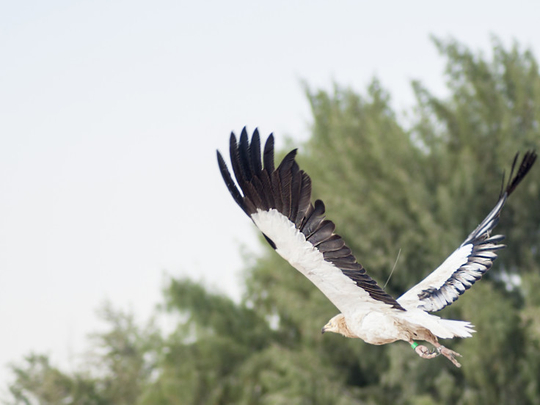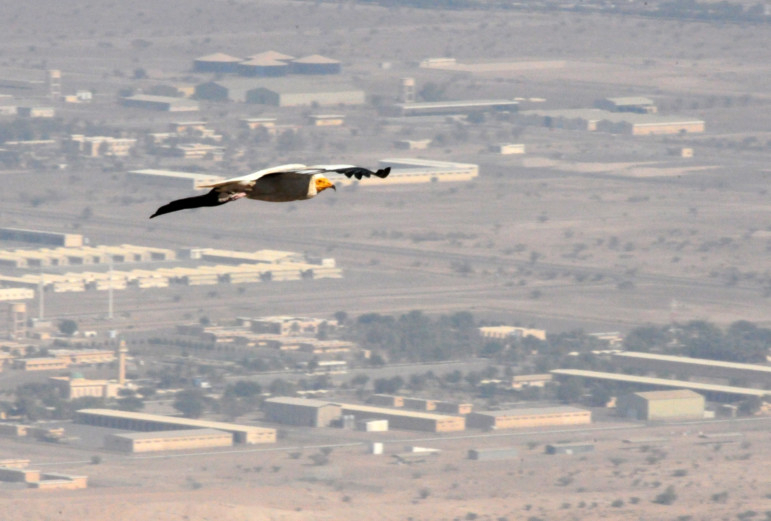
Abu Dhabi: The Environment Agency - Abu Dhabi (EAD) has revealed the status of four Egyptian vultures that were tagged with satellite transmitters in 2016 for tracking their movements.
Two birds stayed in Jebel Hafeet while two others moved to Northwest Oman where they continued to move around Ibri, said an EAD press release on Wednesday.
The EAD has been regularly monitoring the population of Egyptian vultures in and around Jebel Hafeet, the only place they have been sighted in the emirate. The nearest population is located on Al Masirah Island in Oman.
Monthly counts of Egyptian vultures conducted in flight as well as those perched on telecommunication towers suggest that the number of Egyptian vultures on Jebel Hafeet ranges from 50 to 70.
To further understand their status in the emirate and UAE and to determine their use of habitat, the EAD started the satellite tracking of this species during 2014-2015. Globally, vultures face serious issues due to poisoning-related mortality. Some vulture populations in Asia have recorded over 90 per cent decline. Similar trends are being observed in Africa due to large-scale poisoning.
Dr Shaikha Salem Al Daheri, EAD’s executive director of the Terrestrial and Marine Biodiversity sector, said: “The monitoring of locally important and globally threatened species is part of our efforts to understand the distribution and population trends of such species.
“Understanding their status and ecology is essential in developing appropriate biodiversity conservation plans.”
Dr Salim Javed, acting director, Terrestrial Biodiversity Division at EAD, said the satellite tracking of Egyptian vultures was expected to possibly help find breeding grounds of this species on Jebel Hafeet.
“We also used GSM technology for the first time. This is similar to receiving text messages on the go. It allows transmitters on the birds’ back to send messages about their whereabouts, similar to the messages on our cell phones. GSM technology is particularly useful in areas with good cellular coverage,” Dr Javed said.
“A Multi-species Action Plan (MSAP) for vultures in Europe, Asia and the Middle East and Africa is being developed and a series of workshops under the Conservation of Migratory Species (CMS) are planned over next few months. The data collected from Abu Dhabi and the UAE as a whole will feed into an action planning process,” said Dr Javed.













